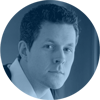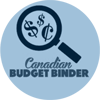This post is part of a series, where we ask some of Canada’s top personal finance bloggers to weigh in on topics that matter to Canadians. Click here for the full list of our favourite personal finance bloggers in Canada, or check out our curated Twitter list to follow them on Twitter.
In November, we asked what Millennials should be doing to improve their financial situation.
This month we asked:
“What’s the best financial advice you ever received? (Or the absolute worst?)”
“Start a Christmas savings account,” they said. “You’ll be able to stop whenever you want to,” they said. It all snowballed from there.
 Sandi Martin, Spring Personal Finance
Sandi Martin, Spring Personal Finance
The best financial advice I’ve ever received was from my mother, who encouraged me to start investing at a very early age (I might have been 18 or 19) to build the habit of saving and to get the power of compound interest working in my favour. The worst advice tries to apply blanket statements to everyone, regardless of their situation (i.e. renting is always a waste of money, Fine Arts degrees are useless, DIY investing is the only way to go, etc.). Personal finance has many nuances that can’t be boiled down to one-size-fits-all advice.
 Robb Engen, Boomer&Echo
Robb Engen, Boomer&Echo
When I was in high school in the 90’s, I read “The Wealthy Barber” which resonated with me. The main message in that book is to “spend less than you earn.” Keep your expenses low, lifestyle modest and you’ll be surprised at how much wealth you can accumulate over the years.
 Million Dollar Journey
Million Dollar Journey
When I had my first job as a paper boy back in the UK and was earning money my parents told me not to spend it unless I needed something. It was then that my savings journey began and how I managed to by my first flat at the age of 19 and my first house at 24.
The worst financial advice I ever received was from a friend who thought I was cheap. He told me to live my life today and just go with the flow. That really doesn’t solve any financial insecurities that most people have. Live for today and forget tomorrow until it comes, not a good idea. Save now, Invest now and manage your money now.
 Canadian Budget Binder
Canadian Budget Binder
I would say the best financial advice I ever read was not to pick individual stocks to invest in. That didn’t stop me from doing it and failing miserably, but I’ve learned my lesson now. Amateur investors have no business trying to outperform investing professionals who have multiple degrees and invest full time.
 Stephen Weyman, How to Save Money
Stephen Weyman, How to Save Money
![]()
The best financial advice was given to me in the 7th grade. I can’t remember the context, but he shared the importance of not depending on credit. I remember it clear as day, he told us “If you don’t have the cash to buy it, you can’t afford it.” And since then I’ve always made sure to never buy anything I couldn’t afford to pay off immediately with cash.
On the other side of the coin, the worst advice I got was fairly recently. My husband and I just bought our first home, and we had a significant downpayment we wanted to put down. We wanted to keep out monthly payments low and it just made financial sense to us to put down 25%. When we told our financial advisor this, he was livid. He told us debt was cheap and we should have invested that money instead of putting it on our down-payment. Since when is paying off debt aggressively a bad thing? It was a personal choice that made sense to us, and I’m glad we did it. And needless to say, we won’t be working with that advisor for much longer.
 Jessica Moorhouse
Jessica Moorhouse
![]()
The worst advice I ever received was: “You don’t have enough money to start investing.” I was sitting in a bank advisor’s office, and didn’t know enough to contradict them, so I accepted it as the truth – and missed out on years of great returns, even though I had more than enough to start investing at the time!
 Desirae Odjick, Half Banked
Desirae Odjick, Half Banked
The Little Book of Common Sense Investing by John C. Bogle gave me the best financial advice I ever received, which was to simplify my investing using ETFs or index funds. I ditched my actively managed mutual funds and haven’t looked back.
 Tom Drake, Maple Money
Tom Drake, Maple Money
![]()
Starting with the positive: probably the best financial advice I received (and took to heart) was to pay myself first. I read David Chilton’s The Wealthy Barber many years ago as a student and it really resonated with me. My father also reinforced this habit with me.
As Chilton suggests if you are able to live below your means and save money then that money can be invested. Money invested can grow over time. Over time, your money can make money. Eventually you’ll see your money working so hard you won’t have to (work) someday. That can and should happen for you.
Of course you have to save to reach that point. I’ve found the best way to do that is through a “forced savings” program; make savings automatic. The majority of people with an automated savings and investment plan in place hardly notice the difference in their consumption levels. You can start your forced savings program with very small amounts. Even $25 per week will add up over time.
Now for the worst advice, geez, where do I begin?
I wrote about my big fat investing mistakes on my site so you don’t repeat them.
One big fat mistake was buying mortgage life insurance. I don’t recall how I got sucked into this product but I did. I suspect I just listened to someone at the bank without doing any homework. I think most homeowners are better off with individual life insurance instead of mortgage insurance. There are many reasons for this and you can read this article on my site to learn more.
Don’t own a home but want to invest instead? Please do not buy penny stocks, another huge mistake. I bought a couple of penny stock companies in my 20s, hoping they would skyrocket in value over time. These guys never went anywhere but down. I still own two of them in my trading account as a reminder of the money I’ve lost on trying to cherry-pick stocks that have little to no established history of capital gains or any dividend histories. I only invest in established companies that pay dividends and broad market Exchange Traded Funds (ETFs) now. You can read more about dividend investing and index investing using ETFs on my site.
Last but not least, in my 20s, I invested in mutual funds that charged money management fees close to 2%. I simply didn’t know how much costly fund fees would eat into my investment returns. On top of that, I had no idea that most mutual fund managers have no hope of beating their benchmark index, even after a few years let alone after many years. I don’t invest in pricey mutual funds anymore. You shouldn’t either.
Think of lessons learned like this: “You may not realize it when it happens, but a kick in the teeth may be the best thing in the world for you.” – Walt Disney
 Mark Seed, My Own Advisor
Mark Seed, My Own Advisor
“Trust me.” This isn’t exactly advice, but blindly believing my advisor was the worst mistake I ever made. I trusted that he was taking care of my money, but I later learned that he had me invested in find that benefited him more than me. Always do your due diligence on any investment recommendations. You want to make sure they make sense for you.
 Barry Choi, Money We Have
Barry Choi, Money We Have
